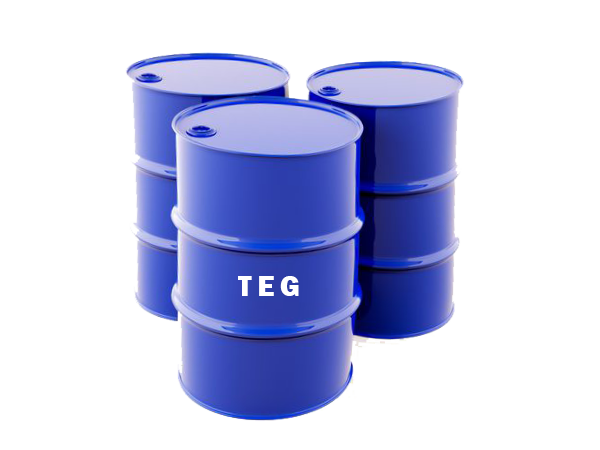Gas Dehydration: Triethylene glycol is primarily used in the natural gas industry as a desiccant or dehydration agent. It is injected into natural gas streams to absorb water vapor, preventing hydrate formation and corrosion in pipelines and processing equipment. TEG is particularly effective in removing water from natural gas streams at high temperatures.
Hydraulic Fluid: TEG is used as a hydraulic fluid in hydraulic systems and equipment, especially in applications where high thermal stability and low viscosity are required. It provides lubrication, corrosion protection, and thermal stability, enhancing the performance and longevity of hydraulic systems.
Humectant: In the cosmetic and personal care industry, triethylene glycol is used as a humectant in moisturizers, lotions, and hair care products. It helps retain moisture, preventing dryness and maintaining the skin and hair’s hydration levels.
Solvent: TEG is occasionally used as a solvent in various applications, including inks, dyes, paints, and industrial cleaning products. Its solvent properties make it effective for dissolving certain substances and formulations.
Antifreeze: Triethylene glycol is used in some specialized antifreeze formulations, particularly in applications where low toxicity and high boiling point are desired. It provides freeze protection and thermal stability in cooling systems, similar to monoethylene glycol (MEG) and diethylene glycol (DEG).
Chemical Intermediate: TEG serves as a precursor or intermediate in the synthesis of various chemicals, including plasticizers, resins, lubricants, and pharmaceuticals. It undergoes reactions to produce compounds used in a wide range of industrial processes.
Textile Processing: Triethylene glycol is used in textile processing as a dye carrier and leveling agent. It helps ensure uniform dye penetration and color consistency during the dyeing process.
Heat Transfer Fluid: TEG is utilized as a heat transfer fluid in various industrial processes, including heating, cooling, and refrigeration systems. It has a relatively high boiling point and thermal conductivity, making it suitable for applications requiring efficient heat transfer.
Deicing Fluids: Triethylene glycol is sometimes used in deicing fluids for aircraft and runways, particularly in regions where extremely low temperatures are encountered. It helps remove ice and frost from surfaces, ensuring safe aviation operations.



نقد و بررسیها
هنوز بررسیای ثبت نشده است.